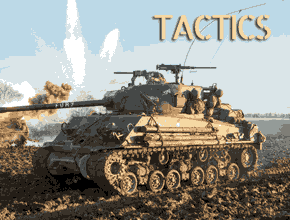Based on the T-55
The Romanian ground forces were primarily equipped with Soviet-built tanks at the beginning of the cold war, namely the T-34/85, but modern Soviet forces were present at least until 1970 when Ceaucescu pursued an independence policy that led to the retirement of these forces but an order for 850 T-55s.These were delivered between 1970 and 1977. However relations with the Soviet Union and other Warsaw Pact allies were so cold that no help could be obtained, and Romania turned to the People’s Republic of China, which in turn saw the opportunity to tackle the Soviets once again and provided help and expertise. The T-55A became the major part of these forces, known locally as the AM type, still in service in the 1990s.
Their "Volna" fire control system was gradually replaced by the upgraded Czech T-55AM2 "Kladivo" FCS, and eventually the locally upgraded "Ciclop" FCS. This was a modernization program which began in 1974. But alongside there was a strong impetus to develop a domestic main battle tank, in accordance with this independence policy. The original requirement asked for a 40-tons MBT with a 100 mm main gun and an 800 hp diesel engine which was to be similar to one propelling the Leopard I and based on the T-55.
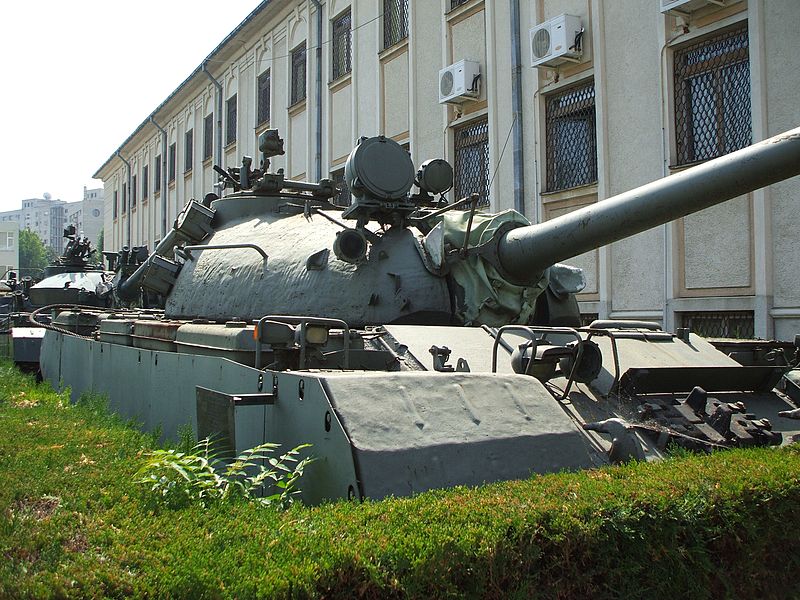
TR-580 at the Ferdinand Museum, Bucharest. The extra welded 100 mm front plate can be clearly seen (Wikipedia).
Development of the TR-77(TR-580)
The "TR" stands for "Tank Romanesc". The program started in 1974, ended on 1980 when the TR-77 entered in service. The "77" stands for the year of introduction, and "580" was related to the engine which was eventually chosen instead for production. Indeed, negotiation began with West Germany for the delivery of a license for the local manufacture of the desired 800 hp diesel, but the West German attitude towards democracy prevented any prolongated collaborations. Work on the 800 hp version, however, was pursued and would lead ultimately to the TR-85.Work on the first prototype was conducted at the "Central repair combat equipment" of Mizil from Mizil Mechanical Plant in 1974. The first three zero-series were completed in mid-1976. In October 1976, the first production vehicles left the factory, for further testing which lasted about six months. By late spring 1977, production moved to the larger Marsa Mechanical Plant, where the actual, entire Romanian tank production takes place nowadays. Investments inMarchh 1976 for this plant were over three billion lei, representing almost 80% of the total planned investment for the TR-77 program.
In the spring of 1978 for political reasons, all manufacturing and training specialists, in Sepia were transferred to Bucharest, where a new factory was set up. The new tank Factory was established in 1978 under Decree No. 514/17.12.1978 as the Special Heavy Machinery Factory (FMGS) in 23 August. Investment however was discontinued. The first serie TR-77s however first participated -even before being assigned to military units- in a military parade in Bucharest on the occasion of the Romanian National Day (august, 23). Tests were performed in specialized military polygons until last October 1979 with the first 11 tanks delivered.
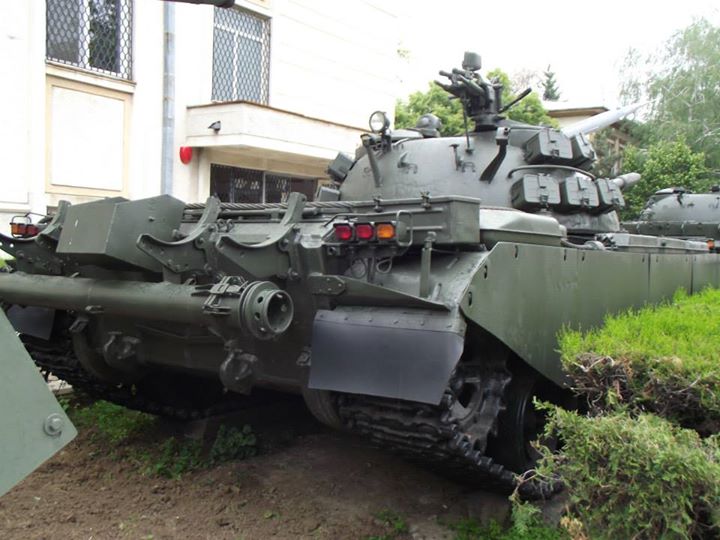
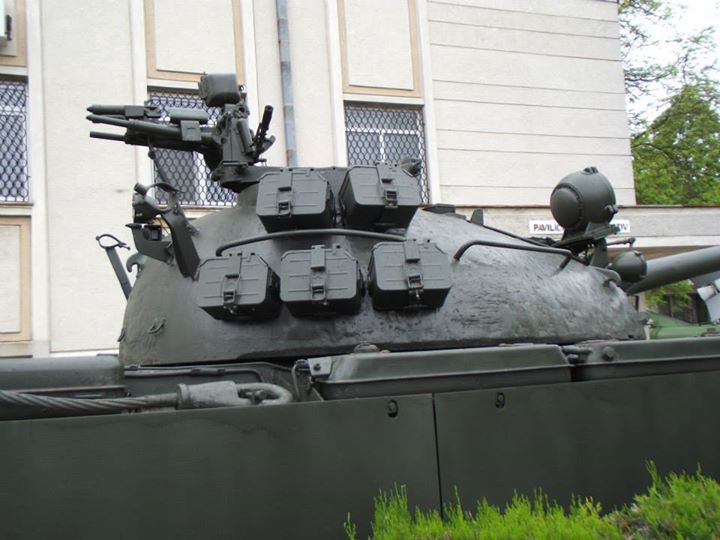
Tr-850, rear turret view detail. Bucharest Military Museum. Tanks Encyclopedia gallery on facebook. Author: Stan Lucian
Since February 1980 further tests with the new 25 tanks produced in 1980 were made at the Mizil and Jegălia Mechanical Plant, in Calarasi. A final order was placed for 210 tanks and 100 sets of parts per year. By the Decree 474/12.26.1983, technical and organizational measures were intended to increase production capacity to 500 tanks per year. The new capabilities made it possible to organize the production of the tank TR-85, to achieve the required quality and - at the same time - number of pieces required. This also was to gear up production for the TR-85. In 1990 it was planned for 01.01.1991, that the tanks factory would pass from the 23 August Bucharest organic company (now SC Faur SA) to an organic Army Industrial Group, the RAs.
Design of the TR-77
The TR-77 emerged as a heavily-modified T-55. The overall goal was to provide a far better protection (200 mm on the front glacis), but this added weight had to be compensated by the engine. However the use of a frontal 200 mm was at first controversial, and had a direct impact on the weight, of around three tons. They are easily seen on front-view photos.Mobility
To make provision for the new engine, the rear was lengthened, and six pairs of locally-designed roadwheels were fitted instead, along with new suspensions with more modern torsion arms. The new drivetrain was protected by the addition of metallic side skirts. This roadtrain gave a 0,895 kgs/cm2 ground pressure. Fixations on the hull rear were modified. The engine was the local built V2 55, 12 cylinder in V configuration, 4-stroke, 580 hp turbodiesel which gave a 13,8 hp/ton power-to-weight ratio and a comfortable top speed of 50 kph. Outside internal fuel, with the addition of the rear external drums, autonomy was 380 km.Armament
The main gun looks similar to the T-55 100 mm characterized by its muzzle bore evacuator, but is Romanian-built. At first it had had no bore evacuator, termal protection or laser telemetry. The final model was capable of 6 rounds a minute, with fully stabilization on the vertical and horizontal plans. This gun was a variant of the A407 100 mm anti-tank gun M1977 developed in Romania after World War II. The first variant was the M1975 with semi-automatic horizontal sliding wedge type breech lock and the M1977, had a vertical sliding wedge breech block. This gun used at least three types of projectiles:- The explosive/incendiary (HE) similar to the UOF-412 round, with a 15.6 kg F-412 high-explosive fragmentation shell
- The PBR 412B – armor-piercing with tracer
- The BM 412Sg – subcaliber armor piercing
- The latest known is the 100 mm APFSDS.
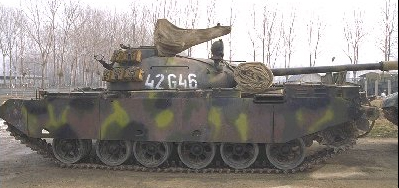
Camouflaged TR-580 - src: militaryrecoignition.net
Protection
The turret armor consisted in a cast profile, starting at 320 mm at the front, plus 20 mm of extra appliqué armour. However, problems occurred with the casting process of the turrets and the first examples were cracking. Casting technology was improved and the metallic composition was upgraded. At the end the turret was heavily protected by 32 cm of solid RHA plus 20 mm additional plates. The hull font glacis was 200 mm strong (two welded plates) with stratified RHA. Ultimately the turret design itself was altered in first modernization program. The rear was indeed cut out and replaced by a extension that served as a prominent turret basket for storage of extra ammunitions, and a better radio set. However the standard turret is most often seen.Production & modifications
The first version of the TR-77 was following a single prototype, and led to a pre-production of 10 vehicles. This early versions received some external collaborations, mostly German. The production of the serie started from 1974 till 1985. When the 800 hp engine became available, it was redesigned TR-800 and served as a basis for the TR-85. to obtain the level of mass production required it was necessary to built an horizontal supply chain from 141 companies and organize raw materials treatment and processs, some being extremely complex, as well assemblies in special facilities. Since the Marsa plant was not ready for assembly, the first 10 tank hulls were manufactured at the AUTOMECANICA Moreni plant which have then the necessary facilities. Apparently photos of the TR-580 also shows the elongated turret seen on the TR-85M1, wether it was only tested or adopted as a modernization.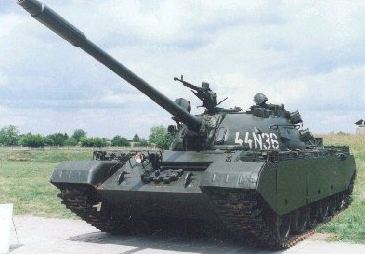
Front view: src: militaryrecoignition.net
The TR-580 in action
The only event which possibly saw these tanks in action in Romania proper, was the Romanian revolution events of December 1989. Tanks were indeed reported at Timișoara's main access on December 17 and in downtown Bucharest by the 22 of December. Crucially, these tanks (mostly reported of the T-55AM type) sided with the population that day, deciding the outcome. However on 23, tanks manned by loyal forces were also seen to protect the Palace of the Republic. On the 24 and 25, tanks also patrolled the streets of Bucharest dealing with possible loyal forces although in its immense majority the army joined the insurrection. The TR-580 (Model 1977) was exported with small modifications apparently only to Egypt in 1982-84 and in around 140 units (with possible some re-sold to Iraq). Sources usually claimed from 100 to 200 units were purchased, the common figure being 140. According to wikipedia : 150 TR-580s were ordered in 1981 from Romania and delivered between 1981 and 1984 (delivered via Egypt). Iraqi MBTs of this model possibly took part in the Iran-Iraq war and first gulf war of 1991 but there is virtually no evidence for this, and photos are incredibly rare to find.Links and sources
On wikipedia (in Romanian). On Rumaniamilitary.ro
Specs. TR-580 |
|
| Dimensions (L-w-h): | 9,25 x3,3 x2.4 (30 x10.8 x7.8 fts) |
| Total weight, battle ready : | 46 Tons (101,413 ibs) |
| Crew : | 4 (driver, commander, gunner, loader) |
| Propulsion : | V55 turbodiesel, 12 cyl., 4 stroke, 580 hp, 13,8 hp/t |
| Max speed (on/off road): | 50 kph (31 mph) |
| Range (road/bad road) - Fuel: | 380km (236 mi) |
| Armament : | Main : 100 mm A308 50 rds Sec. 12.7 mm AA - 7.92 coaxial LMG: 500 & 3500 rds. |
| Armour : | From 60 to 340 mm (see notes) |
| Total production | 405 |
Gallery :
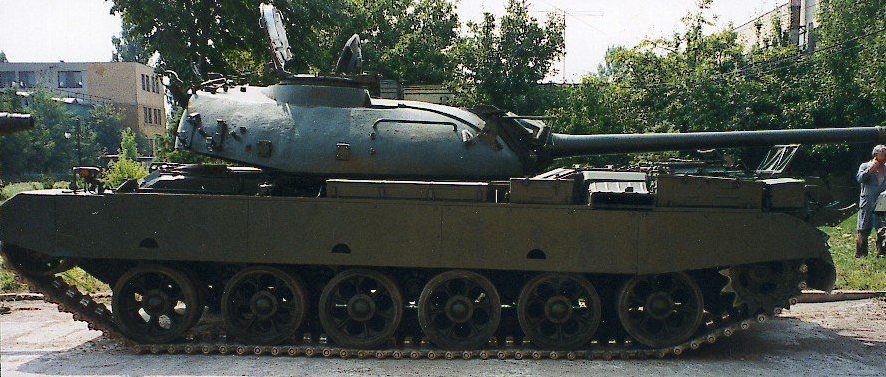
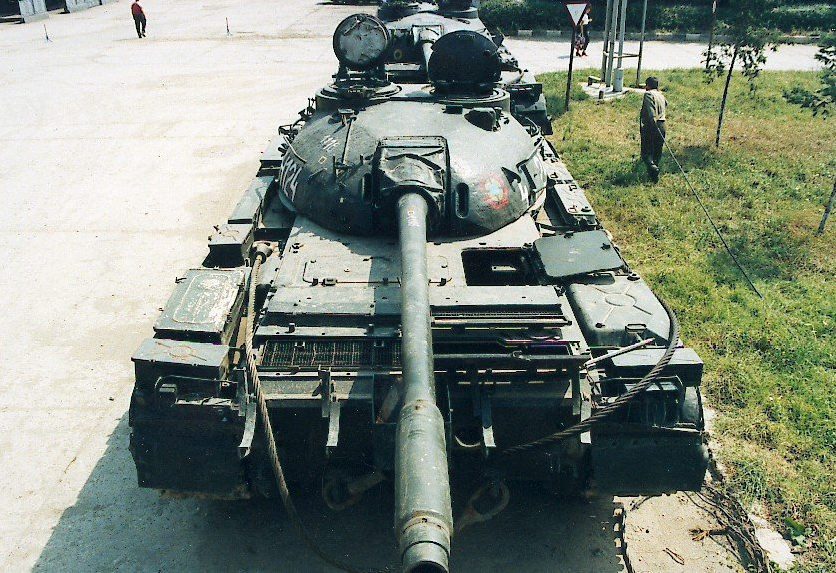
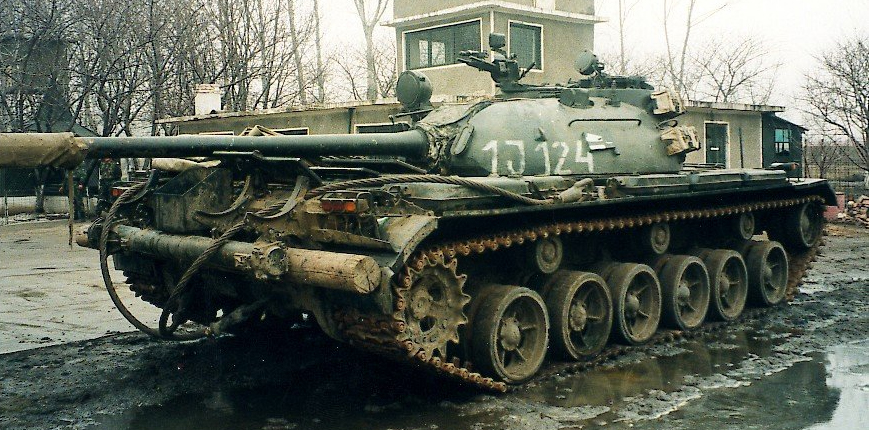
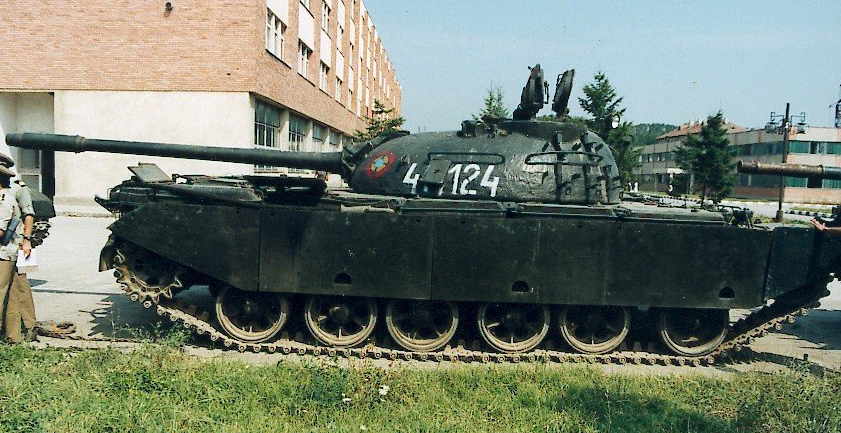
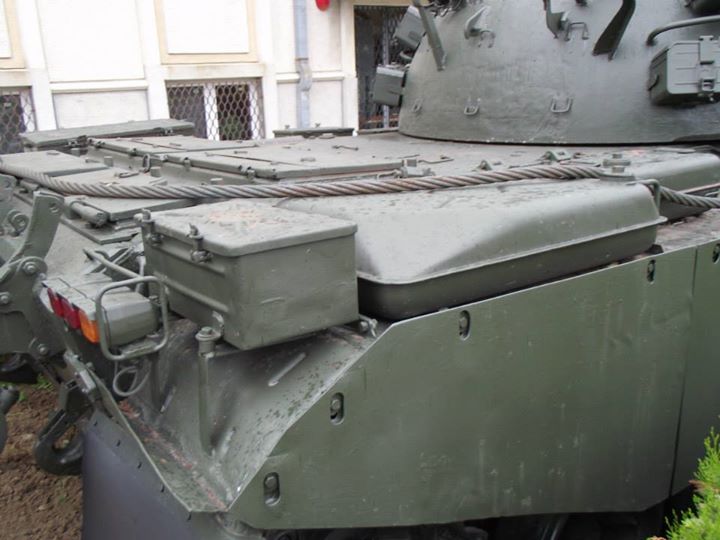
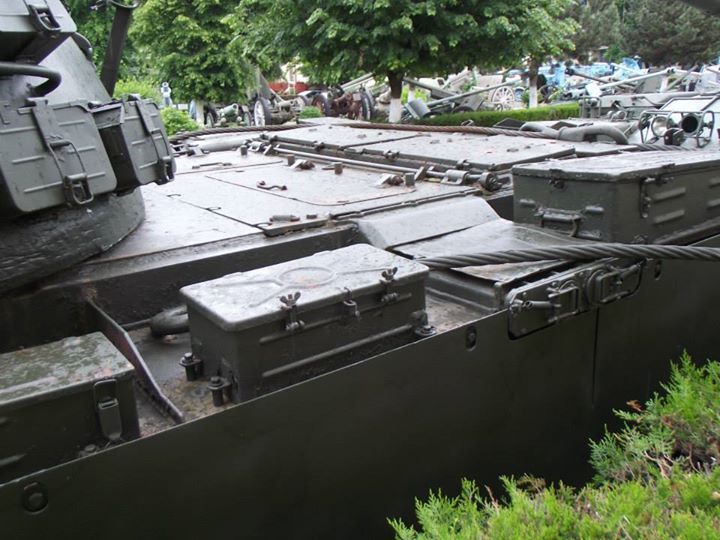

T-55A in Romanian service. This helps to see the differences with the TR-77.

TR-77 early version.

TR-77 MBT of serie, with the large side skirt model

Camouflaged TR-77 in the 1980s.

Late TR-77 with the elongated turret model adopted by the TR-85M1.
 Reconstruction of an Iraqi TR-580 in operational markings, Iran-Iraq war. This is purely conjectural as no photos or evidence of this tank in Iraqi service has been confirmed.
Reconstruction of an Iraqi TR-580 in operational markings, Iran-Iraq war. This is purely conjectural as no photos or evidence of this tank in Iraqi service has been confirmed.
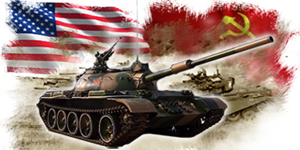
Cold War Tanks


































Cold war tanks posters

Cold War Main Battle Tanks
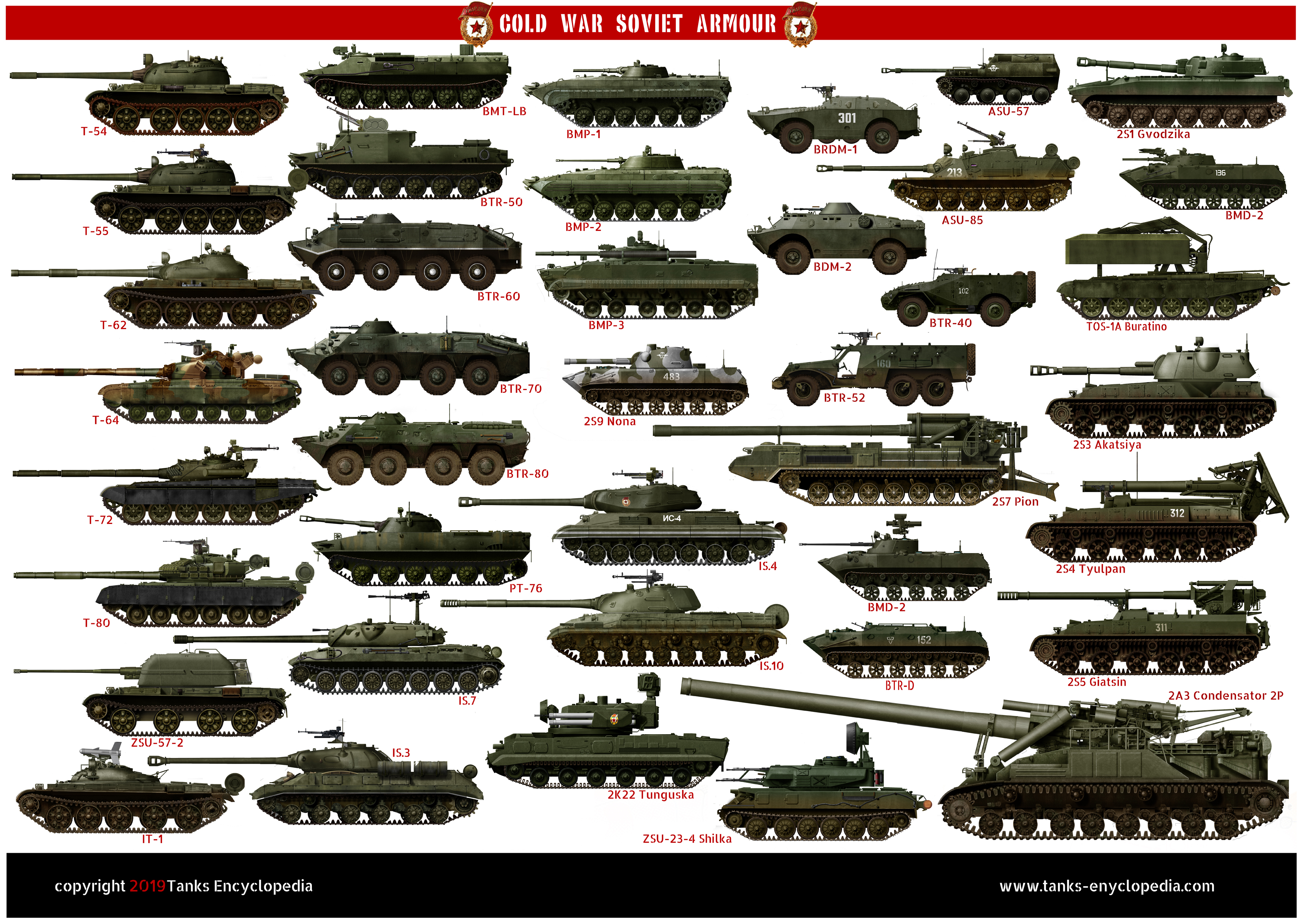
Cold War Soviet Army
Museums, Movies, Books & Games
The Tanks and Armor in pop culture
Tanks and armored vehicles in general are only really grasped when seen first person: The mass, the scale, it's all there. Explore also the way tanks were covered in the movie industry, in books and in video games.Movies:
Best tanks movie on warhistoryonline.com
On imdb.com
On bestsimilar.com/
miltours.com
liveabout.com/
watchmojo.com
Video Games:
pcgamesn.com
historyhit.com
levvvel.com
vg247.com/best-tank-games
mmobomb.com/
alienwarearena.com
